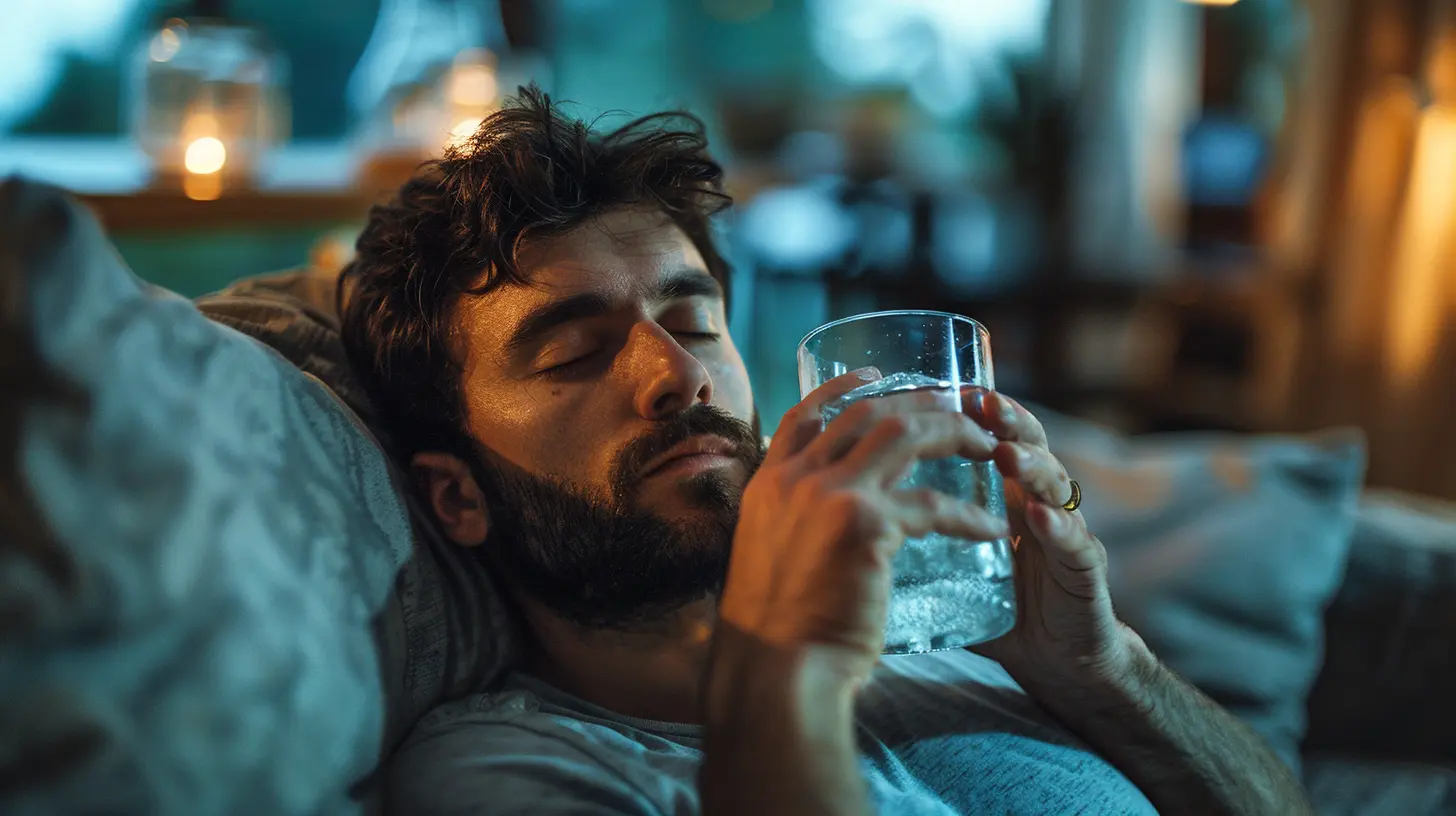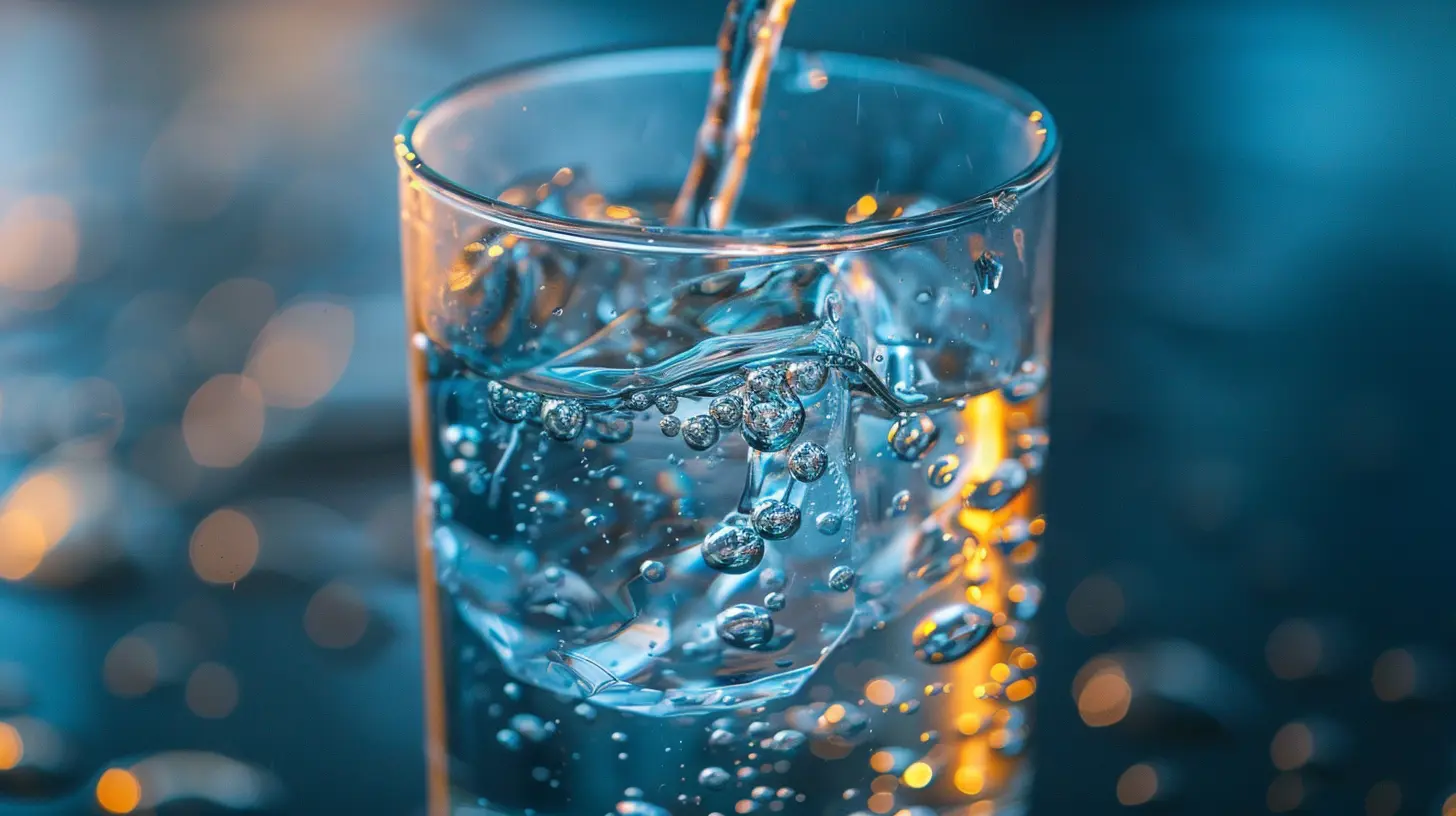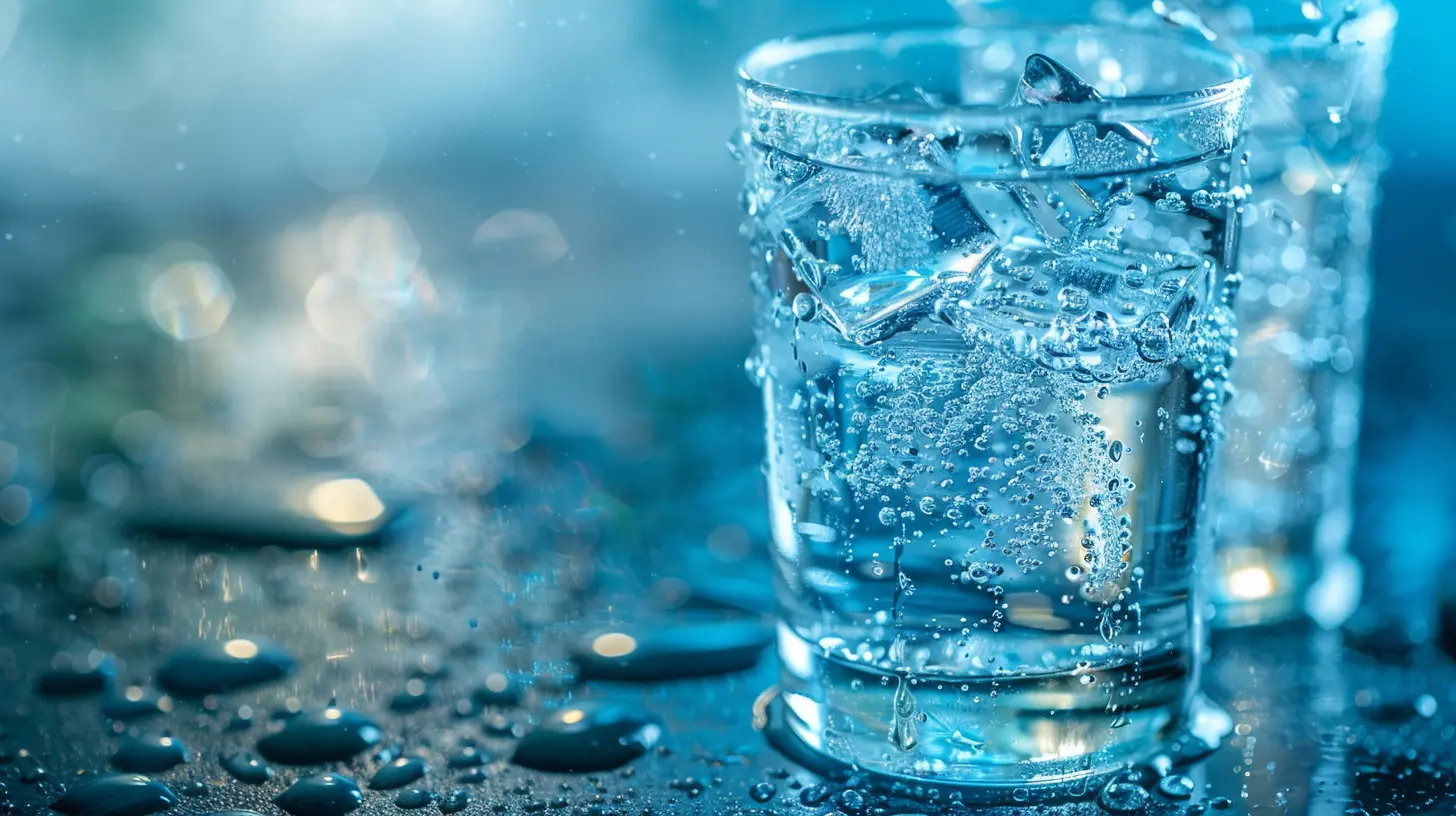Combatting Dehydration While You Sleep
30 October 2025
Let’s be honest — most of us think about hydration during the day. You’ve got your water bottle at your side, sipping between meetings, workouts, or meals. But what happens when we hit the pillow? That’s when the body enters its overnight maintenance mode, and spoiler alert — dehydration doesn’t clock out just because you do.
It's easy to overlook, but nighttime dehydration is a real thing, and it can seriously mess with your sleep quality, skin health, and even your next day’s mood. So, let’s break it down and get into how you can combat dehydration while you sleep — without waking up ten times to use the bathroom.

Why Hydration Is Just As Important While You Sleep
Water is life. It fuels everything — from your digestion to your brain function, your skin’s glow to your joints' movement. But here’s the kicker: even when you're off in dreamland, your body continues to lose water through breathing, sweating, and, yes, even snoring.Think about it: you go 6–8 hours (or more if you’re lucky) without any water while your body is busy at work repairing muscles, restoring energy, and balancing hormones. That’s a long stretch to go dry.
Some common nighttime dehydration symptoms include:
- Waking up with a dry mouth or throat
- Chapped lips
- Headaches in the morning
- Grogginess despite getting “enough” sleep
- Muscle cramps or restlessness at night
Sound familiar? If so, you’re not alone. Let’s talk about how to fix that.

The Sneaky Nighttime Dehydration Triggers
Before we dive into solutions, it’s crucial to point out what could be causing your nighttime dehydration. Often, it’s not just the lack of water — it’s a mix of habits, environment, and even health conditions.1. Room Temperature and Air Quality
Ever wake up parched after sleeping with the heater or AC on full blast? That's because dry air sucks the moisture right out of you — seriously, it's like sleeping in a desert.2. Late-Night Booze or Coffee
Alcohol and caffeine are diuretics, which is a fancy term for “you’ll pee more than usual.” That means if you’re sipping wine before bed, you’re flushing out water and electrolytes — not ideal for hydration.3. Night Sweats
Whether it’s due to hormonal changes (hello menopause), stress, or just being wrapped up like a burrito under thick blankets, sweating at night is a fast track to dehydration.4. Mouth Breathing or Snoring
If you snore or sleep with your mouth open, you're losing moisture even faster. The air passing through your mouth is drying things out every single minute.5. Medications
Some medications, especially those for blood pressure or allergies, can increase urination or cause dry mouth — both of which can leave you dehydrated overnight.
Hydrate Smarter, Not Harder: Tips to Stay Hydrated While You Sleep
Alright, now that we know what’s draining your nighttime hydration, let’s jump into practical tips to keep your fluid balance in check while you snooze.1. Start Early — Don’t Chug Before Bed
The number one mistake? Waiting until bedtime to drink a ton of water. That’s a surefire way to disrupt your sleep with multiple bathroom trips.Instead, focus on what I like to call “hydration front-loading.” Drink more water earlier in the day so that by the time evening rolls around, you’re already well-hydrated.
Try to taper off about 1–2 hours before bed. That gives your kidneys enough time to process the fluids so you’re not waking up at 3 AM with a full bladder.
2. Add Electrolytes — It’s Not Just About Water
Ever heard the phrase “drinking water but still dehydrated”? That’s because your body also needs electrolytes like sodium, potassium, and magnesium to hold onto water and function properly.You can use a small pinch of sea salt in your evening water, or better yet, grab a low-sugar electrolyte drink. There are tons of clean options out there now. Just make sure it's not overloaded with sugar or caffeine (we're looking at you, neon-colored sports drinks).
Bonus: Magnesium particularly helps with relaxing muscles and improving sleep — win-win!
3. Eat Water-Rich Foods at Dinner
Not all hydration has to come from a glass. Some foods are water-packed and help you stay hydrated longer.For your last meal of the day, load up on:
- Cucumbers
- Lettuce
- Zucchini
- Tomatoes
- Bell peppers
- Strawberries
- Watermelon (as long as it’s not too close to bedtime!)
These foods are sneakily hydrating and won't make you feel waterlogged.
4. Keep a Glass of Water by Your Bedside
This one’s simple but effective. If you wake up in the middle of the night thirsty (or just out of habit), having water within arm’s reach helps you stay hydrated without having to trek to the kitchen.But again, sip — don’t chug. You want to soothe, not stimulate your bladder into overdrive.
5. Upgrade Your Bedroom Environment
If you sleep in dry air, consider getting a humidifier. It’s one of the easiest upgrades with the biggest payoffs. Aim to keep your bedroom humidity between 40–60%. Your skin, sinuses, and throat will thank you.Also, keep temperatures cool — around 60 to 67°F (15.5 to 19.5°C). That sweet spot helps regulate body temp and keeps excessive sweating at bay.
6. Ditch the Diuretics (Especially at Night)
Cut off caffeine by mid-afternoon — so no coffee, black tea, or energy drinks after, say, 2–3 PM.As for alcohol, if you’re going to drink, pair it with water. For every alcoholic beverage, match it with at least one glass of water. And try to stop drinking at least 3 hours before bed.
7. Check Your Medications
If you suspect your meds are drying you out, talk to your doctor. They might suggest taking them earlier in the day or switching to an alternative that’s less likely to affect your hydration levels.8. Try Coconut Water Before Bed
Want something more exciting than plain water? A small glass of coconut water before bed could do the trick. It’s naturally rich in potassium and other electrolytes — plus, it's gentle on your stomach and slightly sweet.Just choose a brand without added sugars, or better yet, go fresh if you can.
9. Develop a Hydration Routine
Just like you brush your teeth or take off your makeup before bed, make hydration part of your nighttime ritual.Here’s what a simple routine could look like:
- 6 PM: Last big glass of water
- 7 PM: Electrolyte-rich drink or water-rich meal
- 8:30 PM: Light snack (optional) with water-rich foods
- 9 PM: Small sip of water or coconut water
- Bedtime: Water next to your bed (just in case)
Consistency is key. Once your body gets used to staying hydrated before bed, you’ll probably start sleeping better and waking up feeling more refreshed — no joke.

The Morning After Matters, Too
What you do the next morning matters just as much. Rehydrating when you wake up sets the tone for your entire day.Try starting your morning with:
- A glass of room temperature water
- Water with a squeeze of lemon (adds a bit of vitamin C and flavor)
- A pinch of sea salt or a few slices of cucumber for a refreshing boost
- Herbal tea if you want something warm but non-caffeinated
Avoid reaching for coffee right away. It’s tempting, but rehydrating first helps your body reboot properly and reduces that groggy, dehydrated feeling.
Don’t Overthink It, Just Be Consistent
Honestly, you don’t need to track milliliters or turn into a hydration scientist. Just be aware of how your body feels.Are you waking up feeling dry, groggy, or irritable? Are your lips cracked or your muscles cramping at night? These are all signs that your body’s begging for a hydration reset.
Stay ahead of the curve by paying attention, tweaking your nighttime routine, and making hydration just a natural part of your overall wellness.
Final Thoughts: Hydration Is the Silent Sleep Protector
Dehydration during sleep is subtle but sneaky. It doesn't shout — it whispers: in dry throats, restless nights, and groggy mornings.The good news? With a few simple changes, you can keep your hydration game strong, even while you sleep. It's not about guzzling gallons of water before bed; it's about smart, steady, and intentional hydration throughout your day and evening.
A hydrated body is a well-oiled machine — and a much better sleeper. Stay hydrated, sleep tighter, and wake up ready to crush your day.
all images in this post were generated using AI tools
Category:
HydrationAuthor:

Laura Hudson
Discussion
rate this article
1 comments
Bridget Baker
Great article! Prioritizing hydration during sleep is crucial for overall health. The tips provided are practical and easy to incorporate into a bedtime routine.
November 17, 2025 at 4:29 PM

Laura Hudson
Thank you for your feedback! I'm glad you found the tips helpful for enhancing hydration during sleep.


